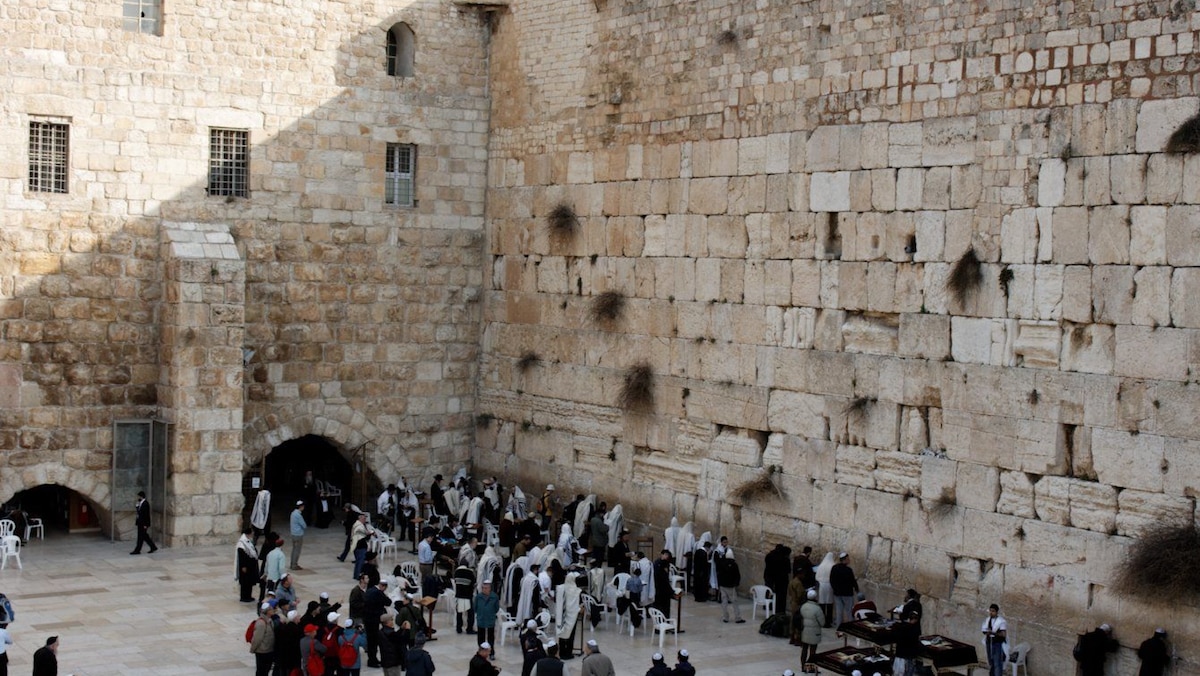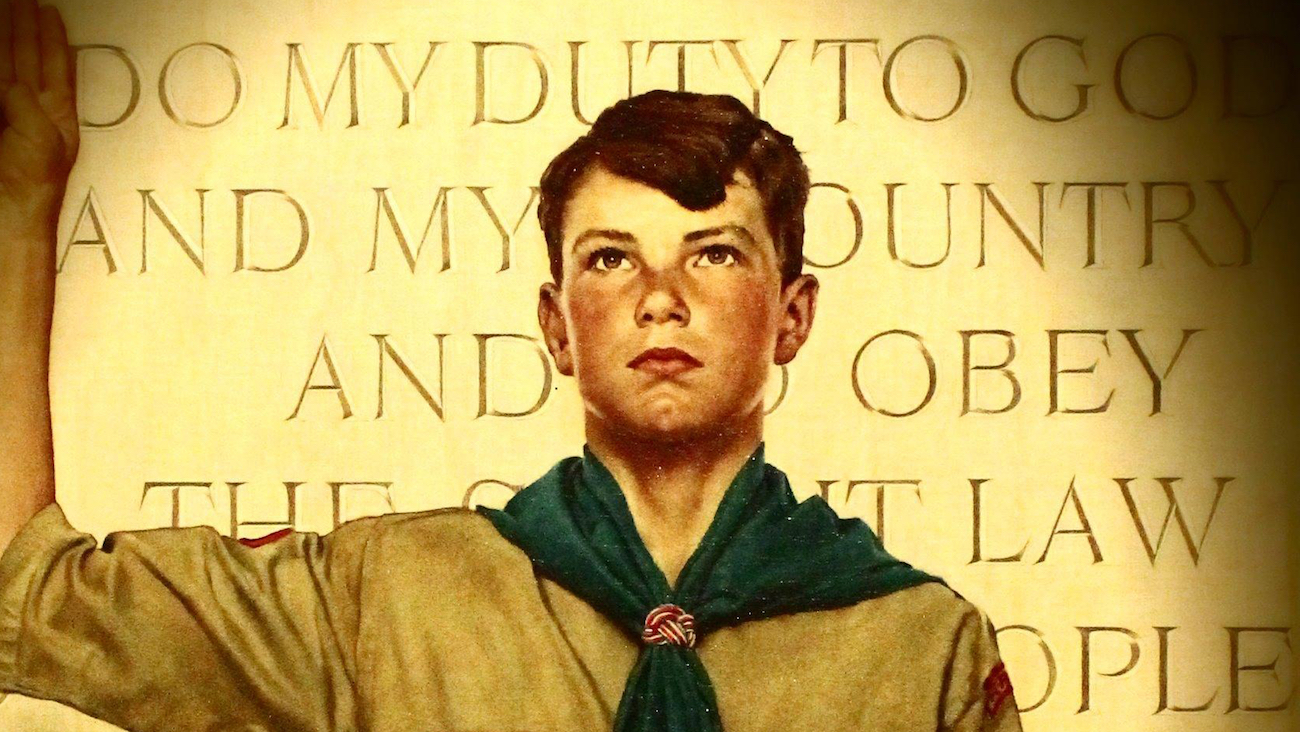Twenty years ago, to mark the 25th anniversary of my priestly ordination, I traveled in pilgrimage to the Holy Land and visited the Wailing Wall in Jerusalem. Every pious Jew longs to be able to go there and wail and cry and pray at the site of the only remaining ruins of the glorious Temple.
There, I witnessed what was for me a very disturbing sight: a road show of sort. It seemed to me that some very devout Jews tried their best to draw everyone’s attention upon themselves as they, with the help of attendants, put on quite wide phylacteries on their foreheads and on their left forearms.
Phylacteries are leather cases containing some passages of the Torah, held on the forehead and on the left forearms by leather straps. After donning their shawl with long tassels and making sure that they got all the attention they could get, they proceeded to pray making an exaggerated rocking motion, so much so that I wondered if their neck would snap.
My thought went immediately to this passage: “When you pray, do not be like the hypocrites, who love to stand and pray in the synagogues and on street corners so that others may see them. Amen, I say to you, they have received their reward.” (cf. Matthew 6:5)
I felt visibly distressed by the whole occurrence. I sensed that such a show was anything but prayer. Yet, those devout Jews must have been deeply certain that they were indeed praying.
Contrast, if you will, that display of showmanship with the calm, reserved, quiet, silent prayer of a contemplative cloister nun, and you have the two extremes. “But when you pray, go to your inner room, close the door, and pray to your Father in secret.” (cf. Matthew 6:6)
The Gospel of Matthew (23:1-12) offers us other contrasts between what was, evidently, the way chosen by the Jewish Communities and the Early Church disciples of Christ of Jewish extraction in praying to God. Another contrast might be the one between those who practice what they preach and those who go through the motions. Or the contrast between those who admit that they do not know how to pray and, so, let the Spirit pray in them, and those who choose to draw attention upon themselves even in this most sacred activity of talking to God and of listening to him. There is also the contrast between those who preach by their unassuming, humble example and those who tell others what to do, yet have already found a loophole to claim an exception for themselves. We can also think of the contrast between those who draw close to others and feel their pain, and those who shrug their shoulders and say: that’s too bad! And then there are those who enjoy serving and attending to others’ needs and those who love to give orders from behind a desk and expect to be honored and revered.
Alas! The list of contrasts can be quite long. Thus, maybe this list of contrasts has already jarred our memory and we might be forced to admit that our inner disposition and real intentions are still wanting.
Well, today Jesus tells us that it cannot be that way for those who have freely chosen to follow him and desire to worship the Father in Spirit and truth. It should be evident that, to be genuine, our embracing of Jesus and of his Gospel should place us in the group of his true disciples. Jesus must be our only Rabbi and Teacher; Jesus must be our only Master. And he must be such because he learned obedience from what he suffered for us.
He is our Rabbi and Teacher because he leads by example in carrying his cross, ahead of us all who choose to follow him carrying our own. He is our Master because he came to serve and not to be served, to give his life in ransom for the many. As we should all know, the Gospel of John does not have an account of the Last Supper, of the first Eucharist. Instead John records for us the account of a disquieting action performed by Jesus. It is an action so disquieting that Peter refuses to have it done unto him. Jesus gets up from the table, dons an apron and proceeds to wash his disciples’ feet. He performs the task of the least slave in a household.
During this Eucharist, our today’s Last Supper, we are served by the Lord his very flesh and his very blood as food and drink, so that we, too, may find the right motivation to offer our bodies to be “broken” for our brothers and sisters and have our blood “poured out” in our caring for others. Hence here, around the same table we shall choose to be the Community that the Lord Jesus wishes us to become.
- A community in which all see and consider each other as brothers and sisters; a community from which no one is excluded, or made feel as an outsider.
- A community in which we do not have a privileged few claiming to have all the answers, but a unified group, determined to search for the Truth together under the leadership of the Church’s Magisterium.
- A community in which the higher the position the more one feels privileged to attend to the needs of the least.
We long for a community in which greatness is measured by one’s insignificance, in which seniority and tenure apply only to loving more, to forgiving more readily and to serving with increased dedication.
Obviously, for this to happen there is need for the type of leadership described by the readings for the 31st Sunday in Ordinary Time (cf. Malachi 1: 14b-2: 2b, 8-10; 1 Thessalonians 2: 7b-9, 13 and Matthew 23:1-12)
May we pray for such leadership in all of our parish communities.






Father, with all due respect that community sounds so nice but it is nothing more than an earthly fantasy. Reality since the fall of man stubbornly reminds us that as long as evil exists on earth there can be no such community on earth without divine intervention